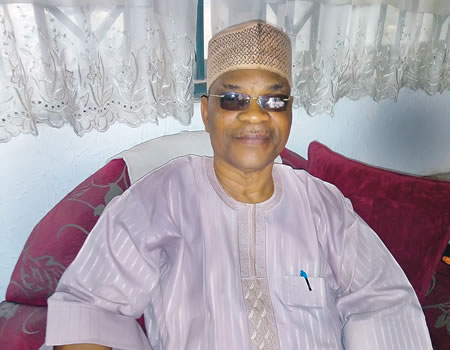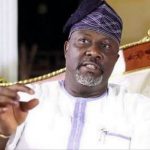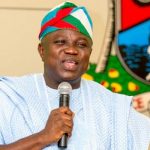Professor Ebenezer Adebisi Adebowale is a former Executive Director of the Institute of Agricutltural Research and Training (IAR&T), Moor Plantation, Ibadan, Oyo State, and former Pro-Chancellor and Chairman, Bowen University Governing Council. He is currently the Chairman, Board of Fellows of the Nigerian Institute of Animal Science (NIAS). In this interview with RUTH OLUROUNBI, he speaks on issues in Nigeria’s agriculture sector, as well as his life’s journey leading to his 70th birthday anniversary.
In the last 45 years since you’ve been in the agric sector, in terms of food security, what is your outlook for Nigeria in achieving this?
Nigeria is a blessed country in terms of agriculture. One thing you cannot deny is that whatever you want to eat you will get, it is not so in many countries. Well, I will like to tell you something funny, I have been to all states of all this country and all the continents of the world and one thing I have found out is that many resources we have in this country, other countries don’t have.
Look, when you move round the world, there is no place like Nigeria, but we are just like the prodigal son, we have messed up everything. Every month we must get a new fruit, from January to December have you noticed that? So there is nothing you want that you cannot get. It is the cost that is the problem. So when people are saying that as agriculturist we have not done enough, I just smile. Take IAR&T for example, when I was the executive director, we did Ife brown and that is the beans everybody is eating all over the country now, later on farmers are complaining that, because most farmers are multi-culturist, they plant their cowpea and then they have their yam, so when they want to weed their yam, the cowpea stems hinder that and then we went again, we did the kewesoke. i.e the cowpeas that the leaves are up then you can just weed your farm.
These are researches we have done again and again. If you go to livestock, we have broken so many frontiers in livestock that for instance if today you start rearing rabbits you can make millions of naira from rabbits. You can make millions from snail, you can make millions from sheep and goats, and of course you know you can make millions from poultry.
The problem is that our farmers don’t enough profits from agriculture. In the case of availability, there is no food that is not available. Please goes all over the world, even in the United States, you can’t get the type of agricultural products that we have. No way! Like I said, I have been to all the continents in the world.
From national perspective, what are your suggestions towards elite participation in agriculture and in empowering the farmers to lead quality and productive lives while they are doing their jobs providing for us?
There are two things that a farmer needs most and it is not money. Many times, yes capital is needed but they need farm implements like ploughs and harrows. It is back breaking. It is not easy for anyone young or old to be hours in the sun. To be able to farm much acreage, you need implements. If that is not in place not many young people will be able to stay in the sun making rows and rows in the ridge. The capital comes second and the interest must be very low. Let me tell you something. Every country in the world today that is successful agricultural have subsidy that is why sometimes when they are talking about countries like Europe bringing in their produce cheaply, they have already subsidized it and you have not subsidized it.
Farming itself is not productive unless subsidised. But is the government ready to subsidise? That is the question we want to ask. Even livestock for instance if you fatten a cow and you want to slaughter it for sale, you are not likely to make your money unless you sell the cow to professional butchers. In other countries they subsidize. We advised the last minister and I think he took it. His fertilizer was subsidized. That is one subsidy that a farmer can take. If you don’t think you can trust the farmers with the money then of course, provide inputs in several areas.
There is another input, technological input, which again isn’t available. Years ago, with the help of the World Bank, we started RIFILS that really helped farmers to increase their inputs. Farmers need inputs not only terms technological inputs alone, but technology in terms of research output and then the funding. But honestly, year in year out government pays lip service to agriculture. In fact when you look at the budget of agriculture, nobody needs to tell you there is less emphasis on agriculture year in year out, it can be saddening.
Speaking of research in agriculture, there seems to be a disconnect between the researchers and farmers in terms of communicating research studies to the public. What is your view about this?
That is the reason for REFILS (research extension farmers input linkage system), a system whereby you link research to extension to farmers and input. And how do we do that? What we do is that the ADPS, of course you know that the ADPS are almost dead now but when they were active, they were the arrow head for REFILS. They have trenches all over the states and they have farmers. IRA&T was the arrow head for the all the ADPs in the south west then. We had ACs, I was the zonal coordinator for almost five years and we had eight states, Lagos, Oyo, Ondo, Ekiti, Benin, Delta, Osun. I was first of all the team leader for Oyo and later on for Osun before I became the zonal coordinator and what did we do? The ADPs would have located some farmers in their different trenches and identify the problems peculiar to them and then they bring it to the research institute and we found solutions to those problems.
Then on the day, we call monthly technology review meeting (MTRM) – a day for all of us to connect. The research scientists, the extensionists in the ADPs, the input agents, the farmers, we all move to the farmers and all the other farmers in the place will come. It was an avenue for all of us to discuss and deliberate on problems and solutions. At the end of the year, we held another meeting in which farmers gave reports on the solutions scientists have provided. Their feedback helps with our evaluation. The scientists then head back to the lab and work on the research and problems are solved on the ground. But because the ADPs are gradually breaking down, that is no longer working.
What advice do you have for state regarding agriculture?
My number one advice is that the governors should pump more money into the ADPs and make them grow so that they can be the armpit to take research technology to the farmers. In fact when the farmers see them, it encourages them. All the locations in this Oyo State, the farmers it encourages them but politics has entered into the ADPs and they are no more being funded. Even there are some ADPs that technocrats are not brought in as their PMs. Even I think there are ADPs now that have no vehicles to go and visit farmers.
Could you tell me a childhood story that you carry with you?
I come from a large polygamous family, my father had 16 wives, and we were about 56 children. One of the things I learnt in childhood was that because of the population, we all eat together, once you pray and want to start eating, it depends on how much you can eat. When it finishes it finishes. That helped me in life to do my things in military way. When I want to do my thing I do it. It helps mot to procrastinate. Because in our house then in Akure when the bell rings for food and you want to do something else, bye bye to food. Then I acquired native wisdom, this wisdom helped me a lot in my various leadership position. This wisdom helped in settling issues because I could easily decipher what is being said by each party.
How did your childhood experience influence your life choices in terms of your personal life and academics?
I had very difficult choices; my father was a high chief in Akure who became a very strong kingmaker, a business tycoon who also had his hand into politics. In 1966 January, his house his wealth and everything burnt down. The whole family went into penury. I had just completed my secondary school education in December of the previous year, 1995. My hope was to study sciences after graduation, now there was no financial backing from any relation. So I went to Lagos, got an accommodation in Ajegunle, and registered in federal school of science, it was then in Onikan, Lagos to start studying science for the first time. That was in January 1966 after the whole episode. So I had to walk from ajekunle to boundary, where you can take a boat to Lagos Island to where I can go the FSS in the evening because I had to register for the evening classes I have some menial work to do.
Later on, towards the end of 1968, I got a job at the federal ministry of establishment so I had to move from Ajegunle to Lagos. By that time, I had registered for my GCE and by God’s grace; I was able to clear five papers. I wrote the paper in January 1969. To be able to do that it was becoming rigorous; So I got a house in Lagos. Actually the house, the landlord just used a plank to build a room outside which I rented. The open toilet from the main house goes through my room. When they are taking their bath in the main house you could see the lather runner through your room. My focus was on what I wanted to, so by God’s grace I got my papers and got admitted into the University of Ibadan. In those days there were no impediments so by October 2, I had to resume in UI.
What was it at those difficult times that kept you focused? What were you running after?
I wanted to be a scientist, and since I have never studied science in my life, I had to be focused. I have some friends who are said they are going to offer arts like Professor Niyi Osundare, like Wole Olinipekun, and they said it’s my own business if I wanted to offer science, and all of them are doing well and far richer than me today but I still have the honour that I am the first student to graduate from that school to become a professor of science.






